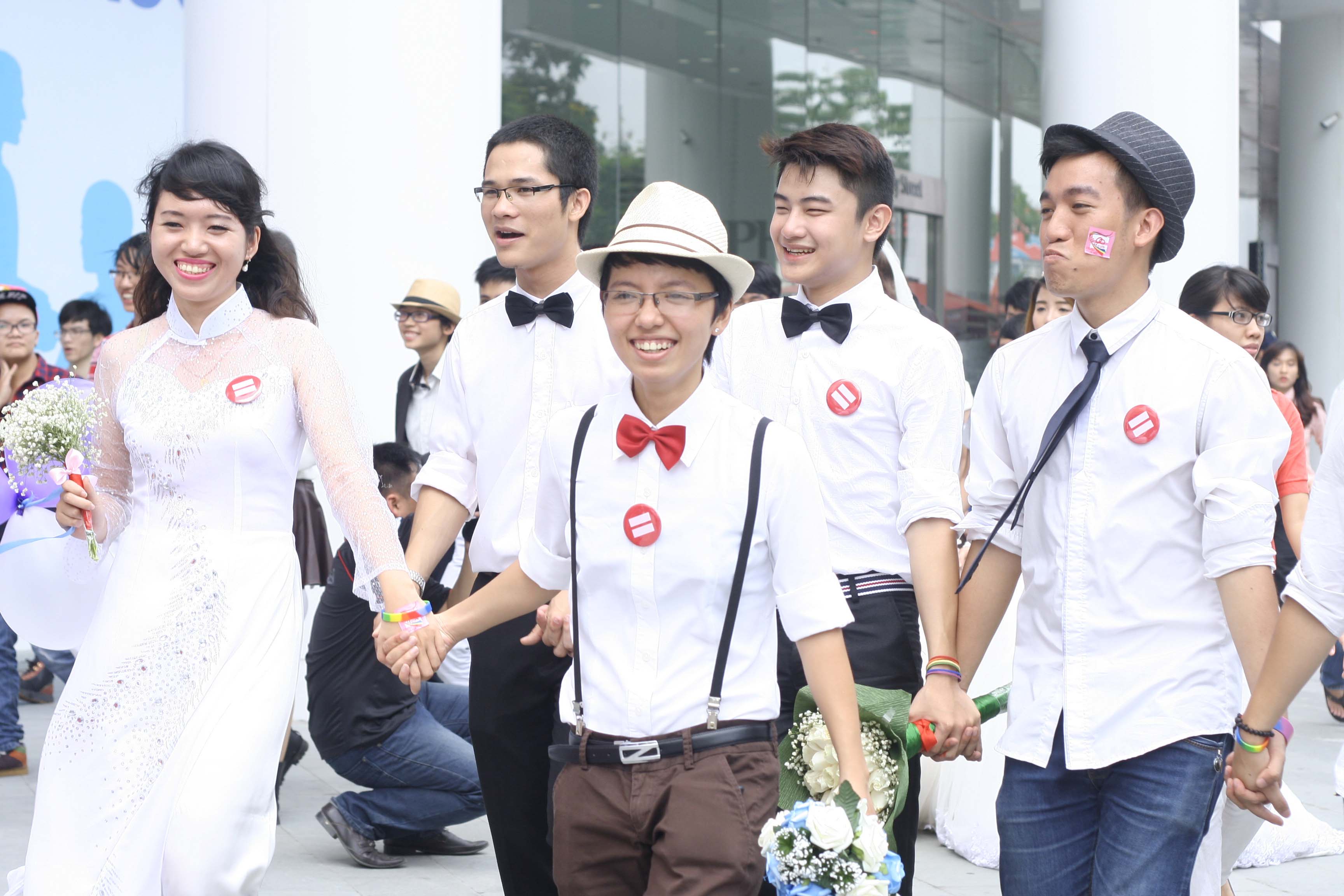Editor’s Note: LeiChandra Truong is a Vietnamese American who spent two years living in Ho Chi Minh City and Hanoi. She submitted this story on LGBT rights issues to Tuoi Tre News from Vancouver, Canada, where she now lives.
>> 53% protest gay marriage legalization in Vietnam: study
>> 52% of homosexual-heterosexual marriages end in divorce
>> A legal guide for same-sex couples in Vietnam
There has been lots of media attention in the past few years regarding LGBT rights issues that have come to the forefront such as the possibility of legalization of same-sex marriage in Vietnam. The Southeast Asian country will soon host its second annual LGBT pride event. In November 2013, a Marriage and Family Law article, which prohibits same-sex marriage, was struck down. This was a huge stride for Vietnam. But one researcher and activist, Dr. Natalie Newton, has been asking, “How does the ‘L’ fare in the Vietnamese LGBT movement?”
Newton, a Vietnamese-American LGBT activist now based in Los Angeles, California, spent 21 months in Vietnam (2009-2010 and summers of 2006, 2007, and 2008), conducting ethnographic research on the social politics of Ho Chi Minh City’s lesbian community. Her dissertation, ‘A Queer Political Economy of Community,’ was funded by the Fulbright-Hays award, which is a partnership between the Vietnamese government and the U.S. Department of Education.
What many LGBT human rights activists and critical scholars call the “Pink Dollar” or “Rainbow Dollar” is a stream of funding from intergovernmental organizations (IGOs) that entail serious contingencies in the way that LGBT rights are manifested locally, especially in developing countries. Newton asserts that the recent media buzz around Vietnam’s seemingly liberalized stance on LGBT rights and recent flow of hundreds of thousands of dollars in IGO funding for LGBT human rights projects is inevitably linked to improving Vietnam’s economic position by proxy. Vietnam’s sudden attention as a trail-blazer in Asia around same-sex marriage facilitates international business and geopolitical investment in the country that recently joined the WTO in 2007.
IGOs and non-governmental organizations (NGOs) have supported Vietnam’s gay community and men who have sex with men (MSM) for decades since the HIV/AIDS pandemic hit Vietnam in the late 1980s. However, only a few studies have focused on Vietnamese female homosexuality. The Vietnamese NGO and think-tank Institute for Studies of Society, Economy, and Environment (iSEE) released a study on 40 lesbians in 2011. However, unlike studies on male homosexuality, these few studies on women have led to little or no lesbian-specific programming in Vietnam.
Newton states that even when NGOs do reach out to women, they encounter much difficulty with access. And there is a significant theoretical gap between the longer-standing Vietnamese feminist movement, which has often advocated for women in terms of heterosexual rape, heterosexual domestic violence, human trafficking, or incest, and truly feminist studies on lesbians, who have encountered abuse, corrective rape of lesbians, sex workers who practice uncommon sexual activities, or women who identify as sexually fluid.
The Vietnamese NGO Center for Studies and Applied Sciences in Gender, Family, Women, and Adolescents released a general handbook on lesbianism that featured one woman whose parents drugged her. The testimony reported that the woman’s parents invited a male family friend to have sex with their child to reverse their child’s sexual orientation while she was unconscious. Corrective rape is a complex feminist issue that bridges Vietnamese women’s advocacy with lesbian rights in particular. However there has yet to be significant programming or visibility around these issues in Vietnam.
Newton states that Vietnamese lesbian communities are hard to reach due to factors including lack of real partnership between the lesbian community and NGOs who seek to conduct more studies or programming. Despite the lack of IGO and NGO involvement, the lesbians in Ho Chi Minh City have formed a close-knit community, organizing large-scale events through many transnational and online-based groups that host events offline. Cross-country charity events, sports championships, and butch beauty pageants were but a few during the time Newton conducted her research.
While legalizing same-sex marriage is progressive, it will not necessarily improve how lesbians are viewed, nor will it diminish the daily struggle for many gays and lesbians whose lives are much more than just marriage to their partners. According to Newton, discrimination is much broader than the institution of marriage. Some of Newton’s lesbian informants acknowledge that same-sex marriage will not change their lives.
Education and awareness of LGBT issues is more important. When people in Vietnam understand and accept lesbian women and the struggles they face, the women will feel more accepted by society. Before same-sex marriage legalization takes place, Vietnam must address the attitudes and beliefs of the general public towards lesbians and the LGBT community.






















































